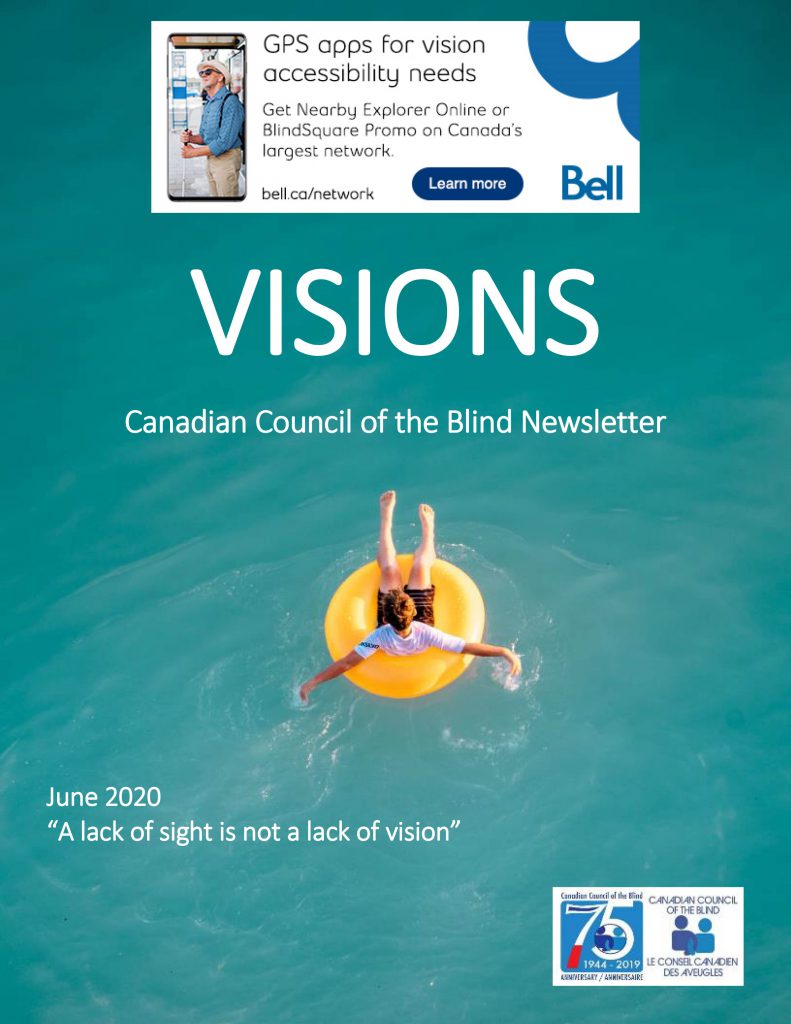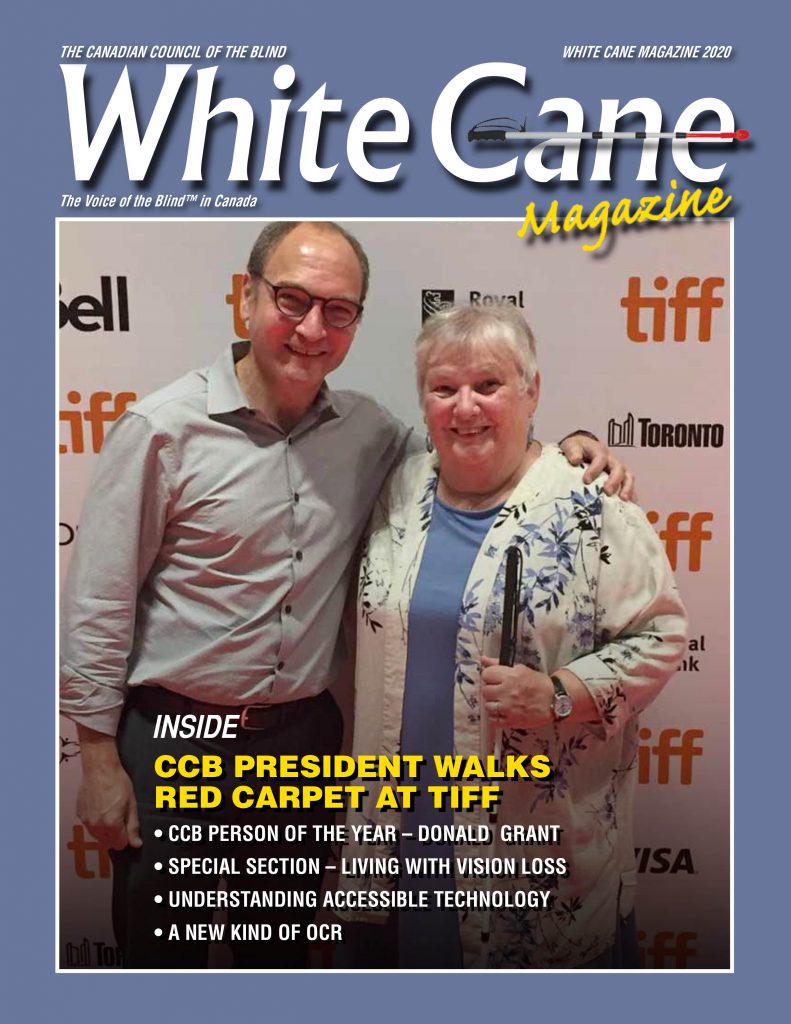Bill C-17, which is the bill contains the COVID-19 payment for those with disabilities, has been held up in the House of Commons. Please see the below from Accessible Canada. CCB was part of the original letters and the open letter, now we encourage you to write to your MP too.
Hello All,
Enough is enough.
Sixty-six disability-related organizations wrote an Open Letter asking the federal, provincial and territorial governments to figureout how to get financial aid to the people with disabilities who need it most. That Open Letter was sent to every MP and every senator.
then over 50,000 letters were sent to the Prime Minister, Minister Qualtrough, Minister Morneau, all of the premiers, and other provincial and territorial decision makers.
Finally, when most of the country is switching to recovery mode, the disabilty community gets the news that those with a Disability Tax Credit Certificate will receive a one-time payment up to $600. This isn’t even close to what we have been asking for, but it is a start.
Well now we have another problem – shenanigans in the House of Commons.
Bill C-17 has four parts. One of them is the $600 support for people with disabilities with a Disability Tax Credit Certifcate. The other three parts of the Bill and the fact that the House of Commons isn’t meeting and operating regularly, are the sore points with the Bloc Quebecois, the NDP and the Conservatives. Bloc and the NDP suggested taking the one part about diability support out of Bill C-17. The Liberals made a bid to split the Bill so eppeople with disabiliteis could get their financial aid. The Conservatives refused to agree. The government needs all parties to agree to pass the Bill.
So, once again, we are pawns in the political game. This will definitely delay people receiving their disability benefits.
If this ticks you off as much as it does us, here’s your chance to tell the MPs enough is enough. Write to your MP and tell them to pass legislation so that people with disabilities can get their financial aid now.
Either follow the links to use the website, or you can copy the sample letter below.
| SEND MY LETTER NOW |
Pass Bill C-17 Now
Bill C-17 has four parts. One of them is the $600 support for people with disabilities with a Disability Tax Credit Certificate. The other three parts of the Bill and the fact that the House of Commons isn’t meeting and operating regularly, are the sore points with the Bloc Quebecois, the NDP and the Conservatives. Bloc and the NDP suggested taking the one part about disability support out of Bill C-17. The Liberals made a bid to split the Bill so people with disabilities could get their financial aid. The Conservatives refused to agree. The government needs all parties to agree to pass the Bill.
So, once again, we are pawns in the political game. This will definitely delay people receiving their disability benefits.
If this ticks you off as much as it does us, here’s your chance to tell the MPs enough is enough.
You can use the letter below to tell MPs to pass Bill C-17 or you can remove the text and write your own letter. We urge you to share your own stories of why people with disabilities should receive financial aid from the Government of Canada.
—————————————————-
Le projet de loi C-17 comprend quatre parties. L’un d’eux est le soutien de 600 $ pour les personnes handicapées avec un certificat de crédit d’impôt pour personnes handicapées. Les trois autres parties du projet de loi et le fait que la Chambre des communes ne se réunit pas et ne fonctionne pas régulièrement sont les points sensibles avec le Bloc québécois, le NPD et les conservateurs. Le Bloc et le NPD ont suggéré de retirer la seule partie sur le soutien aux personnes handicapées du projet de loi C-17. Les libéraux ont fait une offre pour diviser le projet de loi afin que les personnes handicapées puissent obtenir leur aide financière. Les conservateurs ont refusé de s’entendre. Le gouvernement a besoin que toutes les parties acceptent d’adopter le projet de loi.
Donc, encore une fois, nous sommes des pions dans le jeu politique.
Vous pouvez utiliser la lettre ci-dessous pour dire aux députés d’adopter le projet de loi C-17 ou vous pouvez supprimer le texte et écrire votre propre lettre. Nous vous invitons à partager vos propres histoires sur les raisons pour lesquelles les personnes handicapées devraient recevoir une aide financière du gouvernement du Canada.
First Name/Prénom *
Last Name/Nom de famille *
Email *
Postal Code/code postal *
Country/Pays *
Federal Riding/Circonscription fédérale *
My MP
My MP’s email
Send to/Envoyer à:
Prime Minister Justin Trudeau
Minister Carla Qualtrough
Minister Bill Morneau
Andrew Scheer, Leader of the Conservative Party
Jagmeet Singh, Leader of the New Democratic Party
Yves-François Blanchet, Leader of the Bloc Québécois
Subject/Sujet *
Message *
Dear federal politicians, and especially Conservative MPs,
Pass Bill C-17 now so that people with disabilities get the promised $600 in financial aid.
People with disabilities are the last in line to receive any COVID-19 support – and we need it immediately.
Our community members have been paying out of pocket for personal protective equipment because care providers continue to have difficulty accessing their own. They have also been paying for services such as garbage pick-up, grocery delivery, respite care, accessibility equipment repair, or medical supplies. People with disabilities are making hard choices between keeping safe and paying for food.
How can your petty politicking be ethical in times like this? You have delayed long enough!
In 2019, the average CPP disability payment was $1,001.15 per month, and the maximum CPP disability benefit anyone could get was $1,362.30 per month. But some of the people receiving this low income will not receive the $600. Financial aid only goes to those receiving the Disability Tax Credit.
None of us feel that the amount or the reach of the bill is ideal, but we are in dire need. It would be a start.
Pass the bill.
——————————–
Chers politiciens fédéraux, et surtout députés conservateurs,
Adoptez maintenant le projet de loi C-17 pour que les personnes handicapées obtiennent l’aide financière promise de 600 $.
Les personnes handicapées sont les dernières à recevoir un soutien COVID-19 – et nous en avons besoin immédiatement.
Les membres de notre communauté ont payé de leur poche pour l’équipement de protection individuelle parce que les fournisseurs de soins ont toujours du mal à accéder au leur. Ils ont également payé des services tels que la collecte des ordures, la livraison d’épicerie, les soins de relève, la réparation de l’équipement d’accessibilité ou les fournitures médicales. Les personnes handicapées font des choix difficiles entre rester en sécurité et payer pour la nourriture.
Comment votre petite politique peut-elle être éthique dans des moments comme celui-ci?
En 2019, le paiement moyen d’invalidité du RPC était de 1001,15 $ par mois, et la prestation d’invalidité maximale du RPC que n’importe qui pouvait recevoir était de 1362,30 $ par mois. Mais certaines des personnes qui reçoivent ce faible revenu ne recevront pas les 600 $. L’aide financière est réservée aux bénéficiaires du crédit d’impôt pour personnes handicapées.
Aucun de nous ne pense que le montant ou la portée du projet de loi est idéal, mais nous en avons grandement besoin. Ce serait un début.
Votez la loi.
Sincerely/Cordialement,








